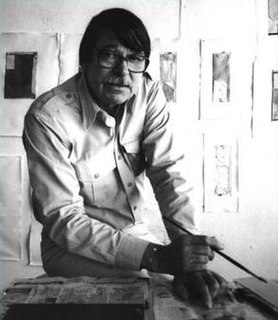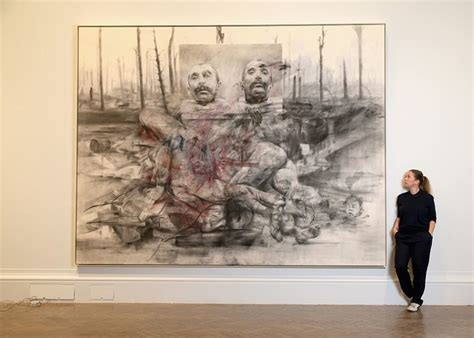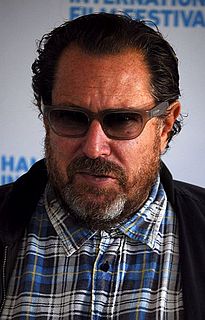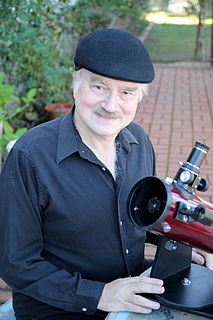A Quote by Elaine Pagels
Christianity becomes just a set of things you believe in. It's almost an intellectual kind of abstract issue.
Related Quotes
All paintings start out of a mood, out of a relationship with things or people, out of a complete visual impression. To call this expression abstract seems to me often to confuse the issue. Abstract means literally to draw from or separate. In this sense every artist is abstract . . . a realistic or non-objective approach makes no difference. The result is what counts.
With an abstract idea it is possible to enter into a relation of formal knowledge, to become enthusiastic about it, and perhaps even to put it into practice; but it can never be followed in personal obedience. Christianity without the living Christ is inevitably Christianity without discipleship, and Christianity without discipleship is always Christianity without Christ.
The government's collection authority, under the Patriot Act, is basically limitless. They can get the medical records and financial records, gun purchase records. And it also becomes part of another important issue that relates to the FISA court and the rest of the debate. It almost becomes a secret law, like there are two Patriot Acts. The one you read on the laptop essentially leads you to believe that there's some connection to terror .
Christianity is not a series of truths in the plural, but rather truth spelled with a capital 'T.' Truth about total reality, not just about religious things.
Biblical Christianity is Truth concerning total reality - and the intellectual holding of that total Truth and then living in the light of that Truth.
Many people entertain the idea that Christianity,like almost any other religion,is basically a system of beliefs-you know, a set of doctrines or a code of behavior, a philosophy, an ideology. But that's a myth. Christianity is not at all like Buddhism or Islam or Confucianism. The founders of those religions said (in effect), 'Here is what I teach. Believe my teachings. Follow my philosophy.' Jesus said, 'Follow me'(Matthew 9:9). Leaders of the world's religions said, 'What do you think about what I teach?' Jesus said, 'Who do you say I am?'(Luke 9:20)








































